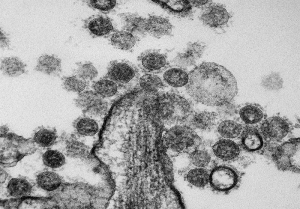Middle East Respiratory Syndrome
Background
MERS is a viral respiratory illness caused by a coronavirus, MERS-COV. The disease was first identified in Saudi Arabia in September 2012. The disease is then spread to 27 countries, especially countries in and near the Arabian Peninsula. Since September 2012, 2494 cases have been reported and 858 people among them died. The fatality rate is approximately 35%.
Symptoms
The general symptoms of MERS include fever, cough and/or shortness of breath. However, some infected people do not show any symptoms.
Transmissions
The MERS virus is transmitted from infected dromedary camels to human, suggesting animal-to-person spread. It can also be transmitted by respiratory droplet produced by infected person when they coughs and sneezes.
Treatment
There is neither vaccine nor treatment available for MERS.
Infection Control
CDC has recommended the following respiratory hygiene to prevent respiratory infection;
- Cover your mouth and nose with a tissue when coughing or sneezing;
- Use in the nearest waste receptacle to dispose of the tissue after use;
- Perform hand hygiene (e.g., hand washing with non-antimicrobial soap and water, alcohol-based hand rub, or antiseptic handwash) after having contact with respiratory secretions and contaminated objects/materials.
Coronaviruses are enveloped, positive single-stranded RNA viruses. They can be inactivated by 70% ethanol. Hisept has a range of products, including hand sanitizers, antiseptic solution, surface and instrument disinfectants that can effectively inactivate virus, including coronavirus. The virucidal activity of these products have been proved by EN 14476 tests.
https://www.cdc.gov/coronavirus/mers/about/index.html
https://www.who.int/emergencies/mers-cov/en/
https://www.who.int/news-room/q-a-detail/middle-east-respiratory-syndrome-coronavirus-(mers-cov)


